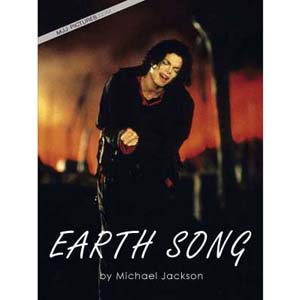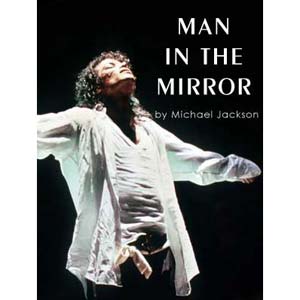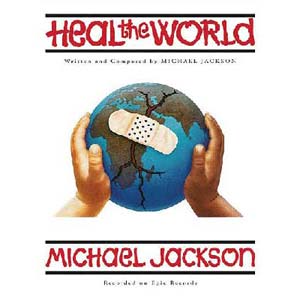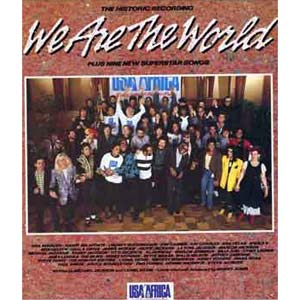— Documentaries —
The Blue Planet (2001)
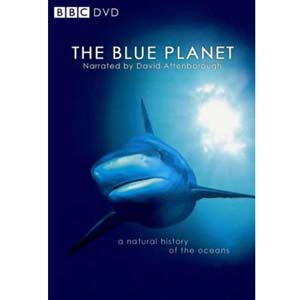
The Blue Planet is a British nature documentary series created and produced by the BBC, It premiered on 12 September 2001 in the United Kingdom. It is narrated by David Attenborough. Described as "the first ever comprehensive series on the natural history of the world's oceans", each of the eight 50-minute episodes examines a different aspect of marine life. The underwater photography included creatures and behaviour that had previously never been filmed.
Sir David Attenborough narrates this critically acclaimed series that dives deep into the marine environment of Planet Earth. Although two-thirds of the world's surface is covered with water, scientists know less about the oceans than they do about the surface of the moon. This limited series travels from various coasts to the poles to examine watery denizens ranging from the gigantic blue whale to microscopic coral polyps.
"Our planet is a blue planet: over seventy percent of it is covered by the sea. The Pacific Ocean alone covers half the globe. You can fly across it non-stop for twelve hours and still see nothing more than a speck of land. This series will reveal the complete natural history of our ocean planet, from its familiar shores to the mysteries of its deepest seas." — David Attenborough, from episode one
Planet Earth (2006)
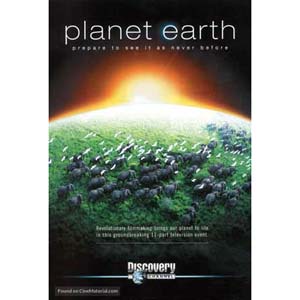
Planet Earth is a landmark 2006 British television series produced by the BBC Natural History Unit. Five years in the making, it was the most expensive nature documentary series ever commissioned by the BBC and also the first to be filmed in high definition. The series has eleven episodes, each of which features a global overview of a different biome or habitat on Earth. At the end of each fifty-minute episode, a ten-minute featurette takes a behind-the-scenes look at the challenges of filming the series.
Planet Earth premiered on 5 March 2006 in the United Kingdom on BBC One, and by June 2007 had been shown in 130 countries. The original version was narrated by David Attenborough, whilst some international versions used alternative narrators.
In 2001 the BBC broadcast The Blue Planet, a landmark series on the natural history of the world's oceans. It received critical acclaim, high viewing figures, audience appreciation ratings, and many awards. It also became a hugely profitable global brand, eventually being sold to 150 countries worldwide. Feedback showed that audiences particularly liked the epic scale, the scenes of new and unusual species and the cinematic quality of the series. Programme commissioners were keen for a follow-up, so Alastair Fothergill decided that the Natural History Unit should repeat the formula with a series looking at the whole planet. The idea for Planet Earth was born, and the series was commissioned by Lorraine Heggessey, then Controller of BBC One, in January 2002.
Earth (2007)

Earth is a 2007 nature documentary film which depicts the diversity of wild habitats and creatures across the planet. The film begins in the Arctic in January of one year and moves southward, concluding in Antarctica in the December of the same year. Along the way, it features the journeys made by three particular species—the polar bear, African bush elephant and humpback whale—to highlight the threats to their survival in the face of rapid environmental change. A companion piece to the 2006 BBC/Discovery television series Planet Earth, the film uses many of the same sequences, though most are edited differently, and features previously unseen footage.
Earth was co-directed by Alastair Fothergill, the executive producer of the television series, and Mark Linfield, the producer of Planet Earth's "From Pole to Pole" and "Seasonal Forests" episodes. It was co-produced by BBC Natural History Unit and Greenlight Media, with Discovery providing some of the funding. It was also the first film released under the Disneynature label. The same organisations collaborated on Fothergill's previous film, Deep Blue (2003), itself a companion to his 2001 television series on the natural history of the world's oceans, The Blue Planet. The British version of Earth was narrated by Patrick Stewart and the US version was narrated by James Earl Jones.
Earth was released in cinemas internationally during the final quarter of 2007 and throughout 2008. With total worldwide box office revenue exceeding $100 million, Earth is the second-highest grossing nature documentary of all time.
An Inconvenient Truth (2007)
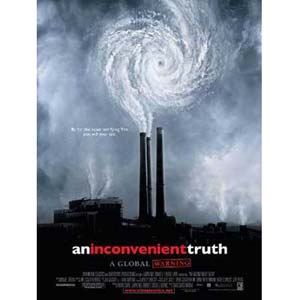
An Inconvenient Truth is a 2006 American documentary film directed by Davis Guggenheim about former United States Vice President Al Gore's campaign to educate citizens about global warming via a comprehensive slide show that, by his own estimate made in the film, he has given more than a thousand times. The idea to document his efforts came from producer Laurie David, who saw his presentation at a town-hall meeting on global warming, which coincided with the opening of The Day After Tomorrow. Laurie David was so inspired by Gore's slide show that she, with producer Lawrence Bender, met with Guggenheim to adapt the presentation into a film.
Premiering at the 2006 Sundance Film Festival and opening in New York City and Los Angeles on May 24, 2006, the documentary was a critical and box office success, winning two Academy Awards for Best Documentary Feature and Best Original Song. The film grossed $24 million in the U.S. and $26 million at the international box office, becoming the tenth highest grossing documentary film to date in the United States. Since the film's release, An Inconvenient Truth has been credited for raising international public awareness of global warming and reenergizing the environmental movement. The documentary has also been included in science curricula in schools around the world, which has spurred some controversy. A sequel to the film, titled An Inconvenient Sequel: Truth to Power, was released on July 28, 2017.
Frozen Planet (2011)
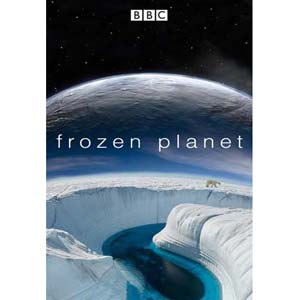
Frozen Planet is a 2011 British nature documentary series, co-produced by the BBC and The Open University. It was filmed by the BBC Natural History Unit. The production team, which includes executive producer Alastair Fothergill and series producer Vanessa Berlowitz, were previously responsible for the award-winning series The Blue Planet (2001) and Planet Earth (2006), and Frozen Planet is billed as a sequel of sorts. David Attenborough returns as narrator. It is distributed under licence by the BBC in other countries, Discovery Channel for North America, ZDF for Germany, Antena 3 for Spain and Skai TV for Greece.
The seven-part series focuses on life and the environment in both the Arctic and Antarctic. The production team were keen to film a comprehensive record of the natural history of the polar regions because climate change is affecting landforms such as glaciers, ice shelves, and the extent of sea ice. The film was met with critical acclaim and holds a Metacritic score of 90/100. Despite such, it has been criticized for limited coverage of the effects of global warming and attribution of recent climate change.
Whilst the series was broadcast in full in the UK, the BBC chose to make the series' seventh episode, which focuses on climate change, optional for syndication in order to aid sales of the show in countries where the issue is politically sensitive. The US Discovery Channel originally announced that they would air only the first six episodes of the show, but they later added the seventh episode to their schedule. In 2012, the US broadcast won four Emmy Awards, including Outstanding Nonfiction Series.
Before the Flood (2016)
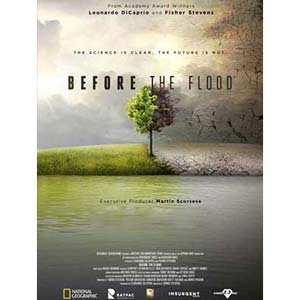
Before the Flood presents a riveting account of the dramatic changes now occurring around the world due to climate change, as well as the actions we as individuals and as a society can take to prevent catastrophic disruption of life on our planet. The film follows Leonardo DiCaprio as he travels to five continents and the Arctic speaking to scientists, world leaders, activists and local residents to gain a deeper understanding of this complex issue and investigate concrete solutions to the most pressing environmental challenge of our time.
At the European premiere in London in October 2016, DiCaprio introduced the film as follows:
Before The Flood is the product of an incredible three-year journey that took place with my co-creator and director Fisher Stevens. We went to every corner of the globe to document the devastating impacts of climate change and questioned humanity's ability to reverse what may be the most catastrophic problem mankind has ever faced. There was a lot to take in. All that we witnessed on this journey shows us that our world's climate is incredibly interconnected and that it is at urgent breaking point... We wanted to create a film that gave people a sense of urgency, that made them understand what particular things are going to solve this problem. We bring up the issue of a carbon tax, for example, which I haven't seen in a lot of documentaries. Basically, sway a capitalist economy to try to invest in renewables, to bring less money and subsidies out of oil companies. These are the things that are really going to make a massive difference... We need to use our vote... We cannot afford to have political leaders out there that do not believe in modern science or the scientific method or empirical truths... We cannot afford to waste time having people in power that choose to believe in the 2 percent of the scientific community that is basically bought off by lobbyists and oil companies.
Planet Earth II (2016)
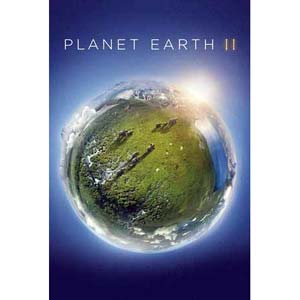
Planet Earth II is a 2016 British nature documentary series produced by the BBC as a sequel to Planet Earth, which was broadcast in 2006. The first trailer was released on 9 October 2016, and the series premiered on 6 November 2016 in the United Kingdom. "Experience the world from the viewpoint of animals themselves. From spellbinding wildlife spectacle to intimate encounters, Planet Earth II takes you closer than ever before." — BBC
From the frozen tundra in the north to the dry forests of the equator, Sir David Attenborough narrates a compelling view of the planet. "Planet Earth" was the first natural history documentary to be filmed in high definition, and now a decade later improved technology has made it possible to capture further details, from elusive animal behaviors to previously inaccessible remote landscapes. In addition to exploring the wilderness, the series examines urban dwellings, focusing on animals that have adapted to city life.
Earth: One Amazing Day (2017)
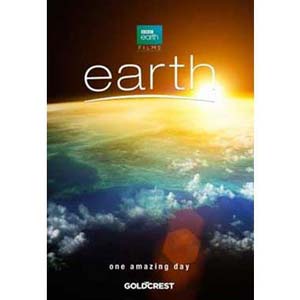
From BBC Earth Films, the studio that brought you Earth, comes the sequel - Earth: One Amazing Day, an astonishing journey revealing the awesome power of the natural world. Over the course of one single day, we track the sun from the highest mountains to the remotest islands to exotic jungles. Breakthroughs in filmmaking technology bring you up close with a cast of unforgettable characters. Told with humour, intimacy and a jaw-dropping sense of cinematic splendour, Earth: One Amazing Day highlights how every day is filled with more wonders than you can possibly imagine- until now.
"Inviting you to spend 24 hours on the most amazing planet in the known universe. To witness the power of our planet, in a day that will change how you look at life. See the World in a way that will help us make connections you’ve never imagined. All animals are connected to the planet we call home – and shaped by the forces which drive it. Even the most familiar species – ourselves!" — BBC
This perfectly serviceable and somewhat conventional documentary tracks the daily struggle to survive for an assortment of wild animals. Adhering to the tried and tested tropes of nature documentaries, this one offers a discreet set of vignettes featuring assorted fauna in the full spectrum of landscapes (tropical, arctic, deserts and so on), usually in danger from predators or environmental risks. It subtextually reinforces the usual message about the diversity and resilience of nature and is sprinkled with a smattering of anthropomorphism.
